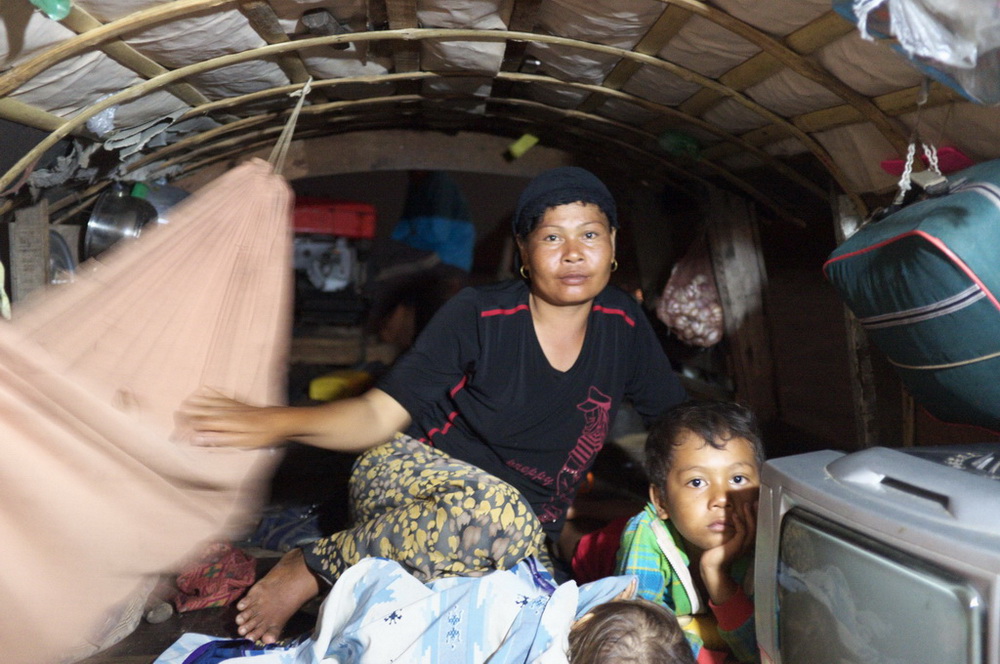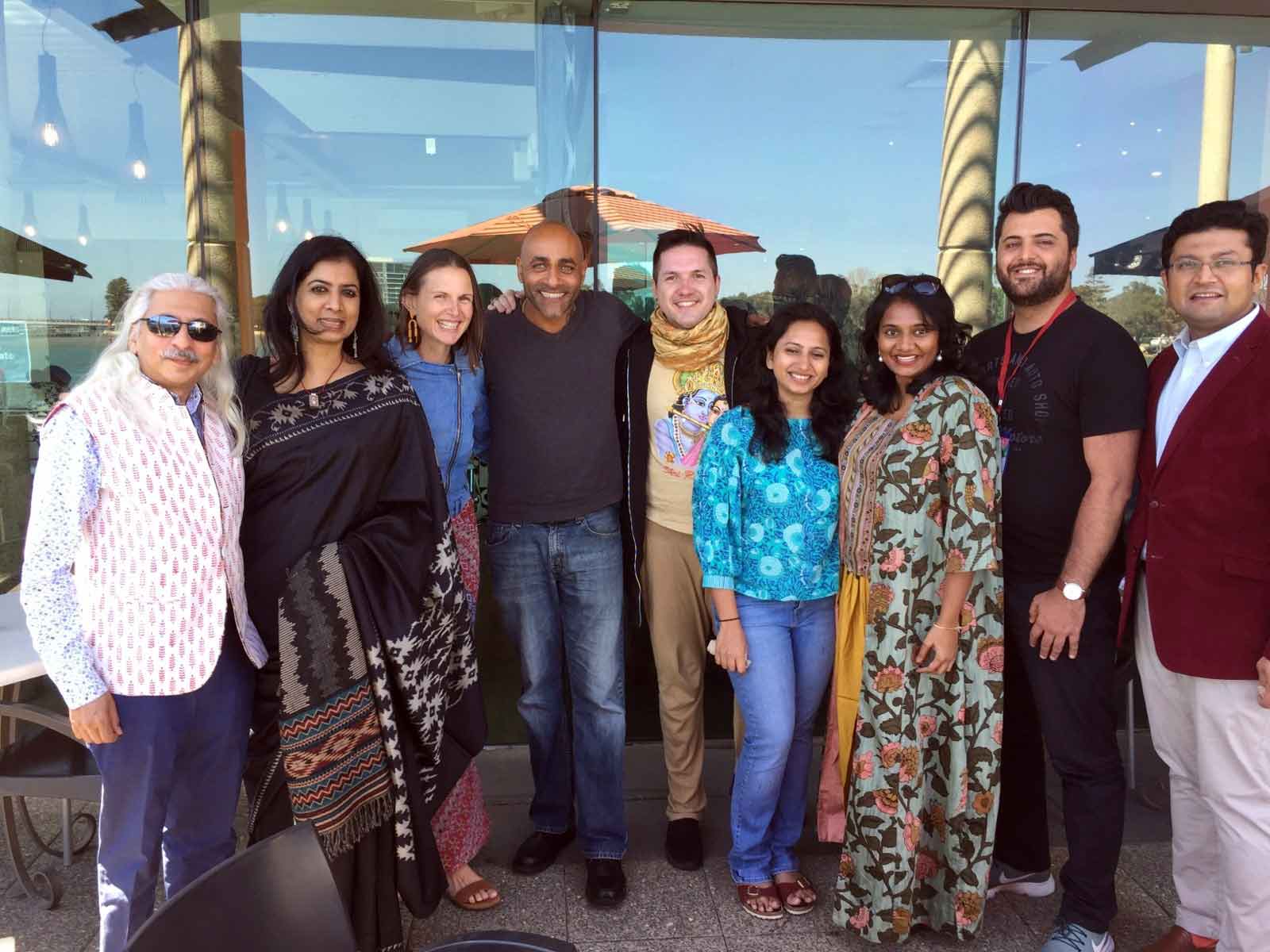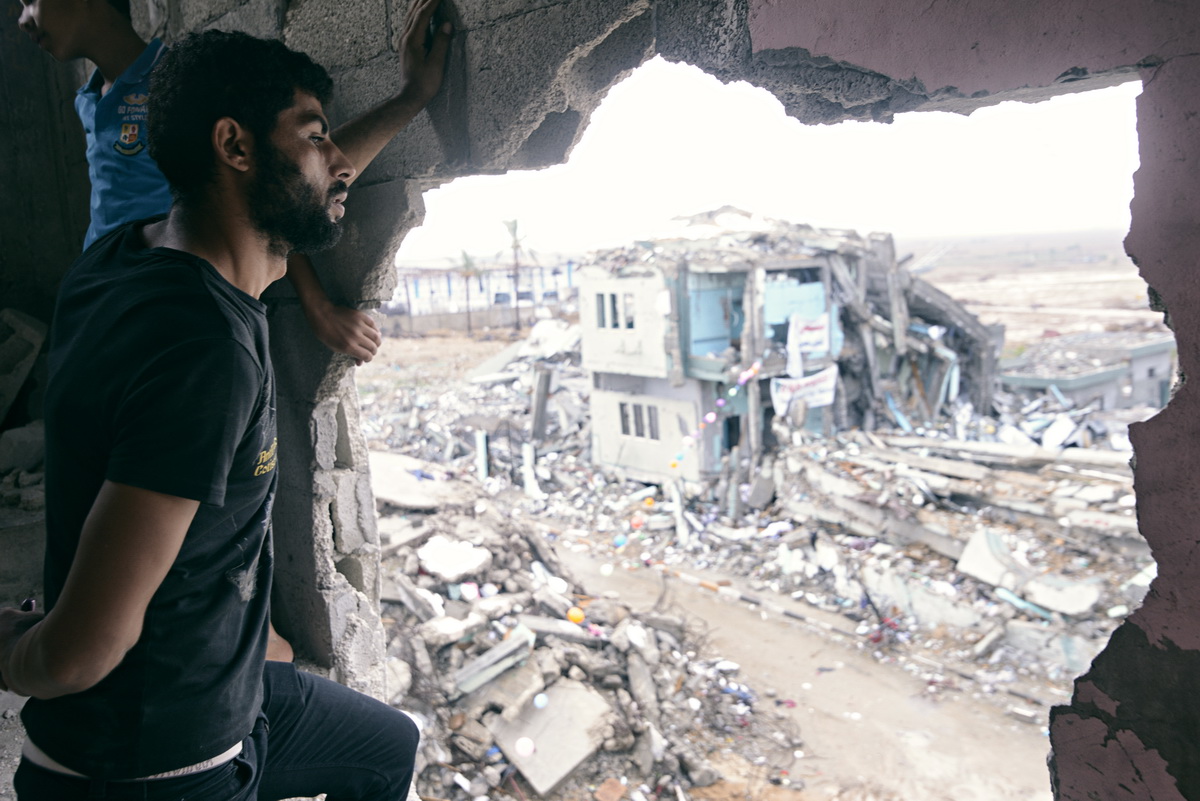Hello World,
I wouldn’t be surprised if you are feeling overwhelmed with online updates at the moment but in the light of the non demanding nature of this one, I hope you will enjoy it and not mind. And if you’re truly inundated, please come back to it when you can. It’s been a while – and I’m not a big user of social media. However now with the Corona virus pandemic, I’m spending more time on it than usual, so it is time for a small update.
I’d like to begin by sending some good wishes out into the world. This virus doesn’t distinguish between class, colour, race or religion. I’d also like to take the opportunity to please sign petitions and urge politicians to lift inhumane sanctions on places like Gaza or Iran, especially at this critical time. It is unbelievable that Gaza is still in the grip of a crippling siege. If you’re in Australia consider joining APAN or donating time or money to organizations working hard to change the current situation.
NOTE: I use the term physical distancing – social distancing I believe, is incorrect. We don’t need to be socially awkward or frown suspiciously at each other. We need to keep our physical distance for a time being, be hygiene vigilant etc. But there are already those who are using this opportunity to prepare us for a new normal, one we are not invited to participate in defining. This must not happen. We must not allow ourselves to become socially separated. We must take action to define the new paradigm emerging, not the corporation. We are all responsible for demanding kinder and more equal societies after this outbreak but let not fear be our rudder. Perhaps the most important message we have received(as we have so many times before) is to treat each other and our home with kindness and to be grateful for the things in life we take for granted, such as a hug and a kiss. Let’s act this time.
***
Liking 2020 so far? I’ll start with the not so good news first.
It comes as no surprise that any events that I’ve had lined up for the next six months have all been cancelled. It’s a setback for both momentum and finance but part of the journey. Also going home see family & friends is on hold. If you are not a refugee, immigrant and still have your family or friends close by, don’t miss, in fact – never miss – the opportunity to show them your love. The only immortal we have is love. Apart from love, everything passes away. When you’re far away from family, all you ask for, is strangers be kind to you.
A couple of people close to me, have passed on. They came to the end of their journey, learned and loved until it was their time to return home, as it will be for all of us some time or another. We must all get in our boat alone and paddle out to where ocean is but a horizon between the sky and the depths. I think it’s good to talk about death while we are here, while we have time. Some believe hope alone keeps death away and if mentioned, death becomes a self-fulfilling prophecy. But the truth is we’re doing ourselves a favour by talking about death, while we got time. Death is not the antithesis of life, it is its antecedent. To me, dealing with loss is dipping, rising with waves of time. When we’re alive, memories are near or far. When we pass, the chronology seems to disperse, we traverse them with irrelevance to time. It completes the circle of our journey of life. It’s beautiful. In my heart I whisper to death to relay my loved ones a message(at the same time I tell him I’m not ready for our chat just yet!): That I miss them so much already. And to thank them for the adventures!
Then comes light. There is always light. It can’t be any other way. The sound of the birds, the insects, the hum of the earth. I can hear them all. Then there is the clarity of the sky, the closeness of the sky, the colour of the sea. I see them all. They are nature and she is showing us we are part of her, that our arrogance, our delusion that we as humans are entitled some sort of privileged place in the nature of her being.
It was my son’s birthday yesterday! Zaki turned nine! Nine years on this round planet, and many more insha’Allah. I’m a proud baba.
I’m thrilled and honoured my work and the stories in The Palace of Angels have been recognised. And of course I’m excited to be in the shortlist alongside other talented authors.
***
The last three-four months have also held lots of good moments and good news (if you prefer bad ones only – head to the corporate news). Moving into writing has been the continuation of a lifelong purpose of making a difference. It’s also hard work, countless hours of moving through research, emails and one’s own words that often, at least for me, brings forth a reckoning towards my experiments with truth. I write about real people, each and every person, often hidden in my photographical archives, has a story. They have or had a name, a dream, a life with all its intricate webs of hope, pain and love and everything else between the heavens and the earth. To do them justice, to do their voice justice, their story – to make their story enter the heart of readers, I bring them out from the place they reside within my own heart first. When all is said and done, writing is about sharing our stories – and within those stories lies that inch of us that is truly human, that wants to connect and love. That is what writing is truly all about.
***
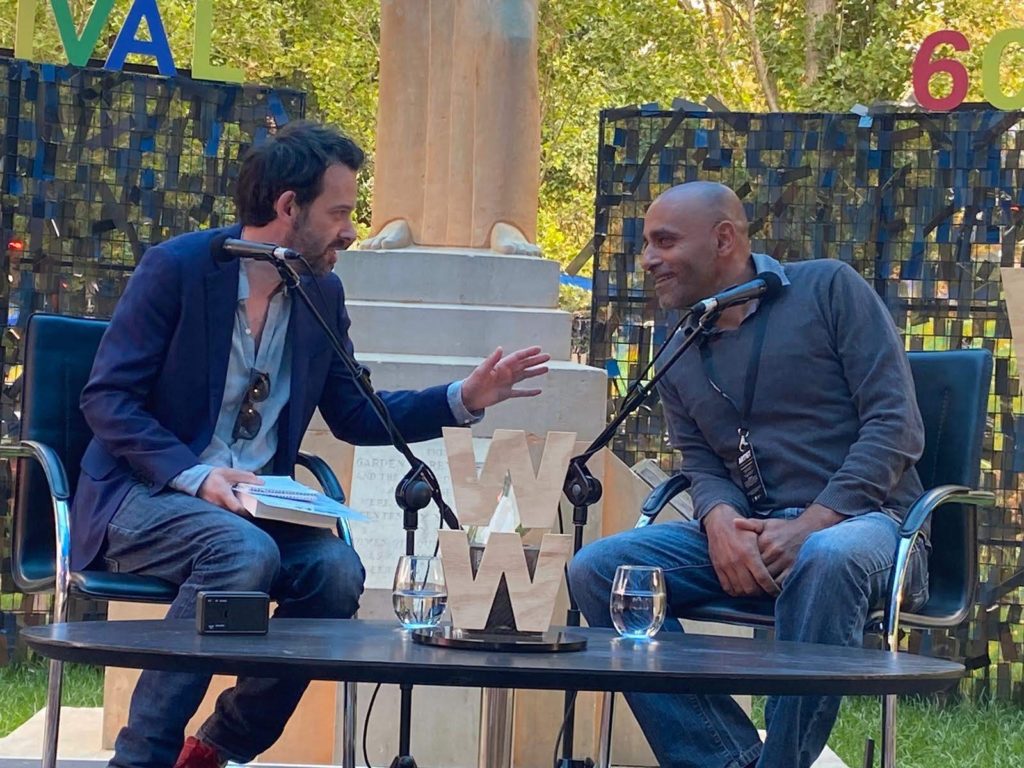
The Writer’s Week at the Adelaide Festival held a conversation with Antony Lowenstein who’s an author and journalist. He’s written for The New York Times, The Guardian and others. He is the author of My Israel and his most recent book on the international drug trade, Pills, Powder, and Smoke: Inside the Bloody War on Drugs. You can listen to the session here.
***
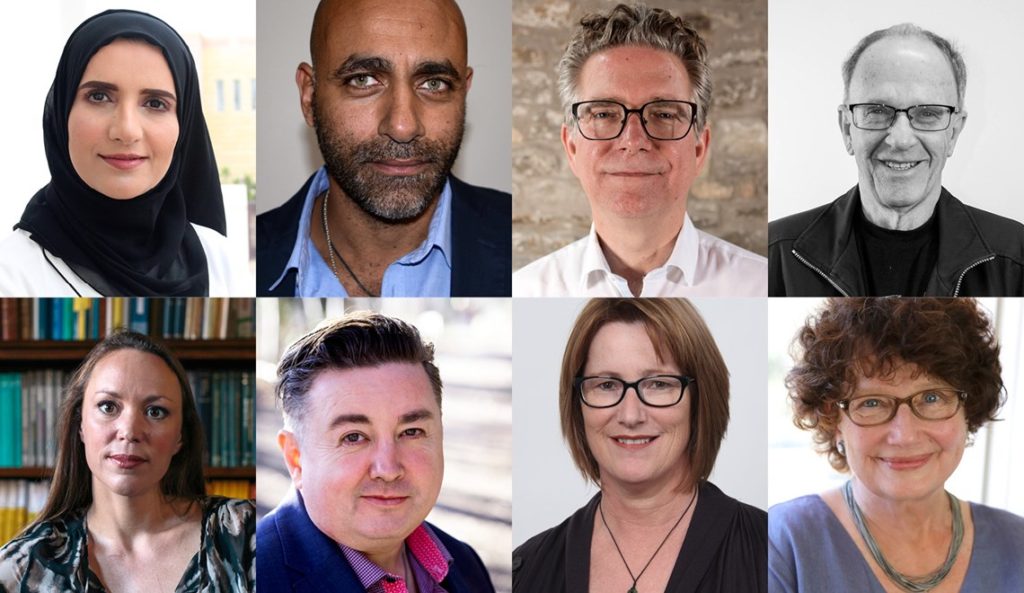
I also had the honour of giving a closing speech for the Writer’s Week alongside 7 other authors: Jokha Alharthi, Robert Elliott Smith, Dennis Altman, Hannah Critchlow, Tony McAleer, Mandy Whyte and Vicki Laveau-Harvie.
You can read it here or view it here.
***
Event additional information
Perth Writers Week as part of the Perth Festival : Sisonke Msimang (who also launched The Palace of Angels) made it a writer’s week to remember!

I participated in the lit crawl on Beaufort St, where the theme for our session was: a letter of complaint. We were 5 writers. You can read my contribution here.
Thanks to Annabel Smith for curating & reading, fellow readers Elizabeth Tan, Holden Sheppard and Josephine Wilson! Thanks also to all who came to hear us (it was packed sessions).
***
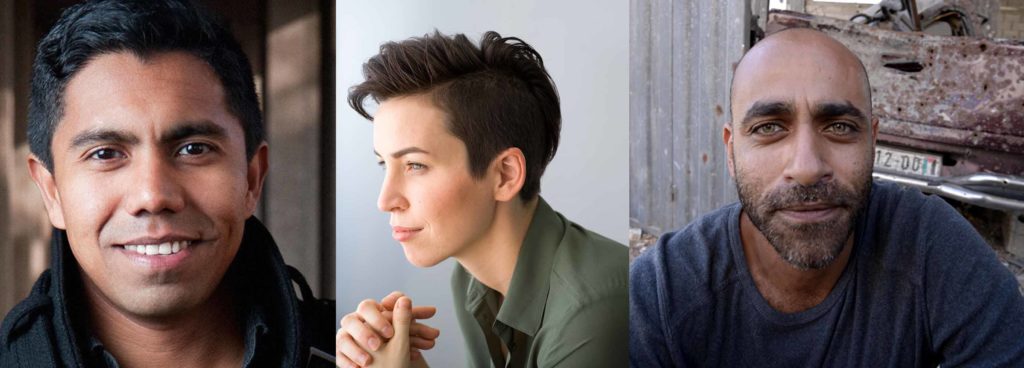
Then there was the reading at the beautiful UWA grounds where I joined Julia Phillips and Arif Anwar in a reading session where I read a section from The Palace of Angels.
***
The most exciting part of the writer’s week was the A Book, A Bus & A Bite event. A bus full of readers joined Melinda Tognini and me in a moving session that took us from UWA to The Cooking Professor in Mount Lawley. Riki and her husband Heni were born in Israel, into a multicultural environment that revolved around food. Her Mother was Turkish. Riki started teaching at The Cooking Professor and is now both the Chef and owner. Hands down, Riki makes a means Baba Ganoush and also shares the belief that we can be better, that human beings can live in peace together. A heartfelt thanks to all the encouraging and engaged readers who joined us that evening, Melinda Tognini for reading The Palace of Angels (twice!) and regarding it so highly. Also to the Perth Festival and in particular Georgia Landre-Ord for putting together this unique way of blending literature with what connects us all, food and the journey we’re all on. Thank you.

What is, is a time of unknown. It’s an opportunity to create and reflect. To take a stand and also engage in a new paradigm approaching our world. What was, an exciting beginning to a new year where connections happened, words and hearts exchanged.
***
We are approaching the middle of the year. Most of us are restricted in our movements but this won’t last forever. Let’s use this time, not only to continue our journey online awaiting a return to what was – but to seriously consider if it’s the same one we wish to return to. We are being told, we will not go back to normal but normal never was. We are facing, hopefully, a post-viral watershed – and it is time to redefine normal. Our pre-Corona existence was never normal, other than that we normalised greed, hatred, inequality, loneliness, disconnection, poverty and the destruction of our environment. What kind of normal do we want?
Salaam
Morsi 18/04/2020

